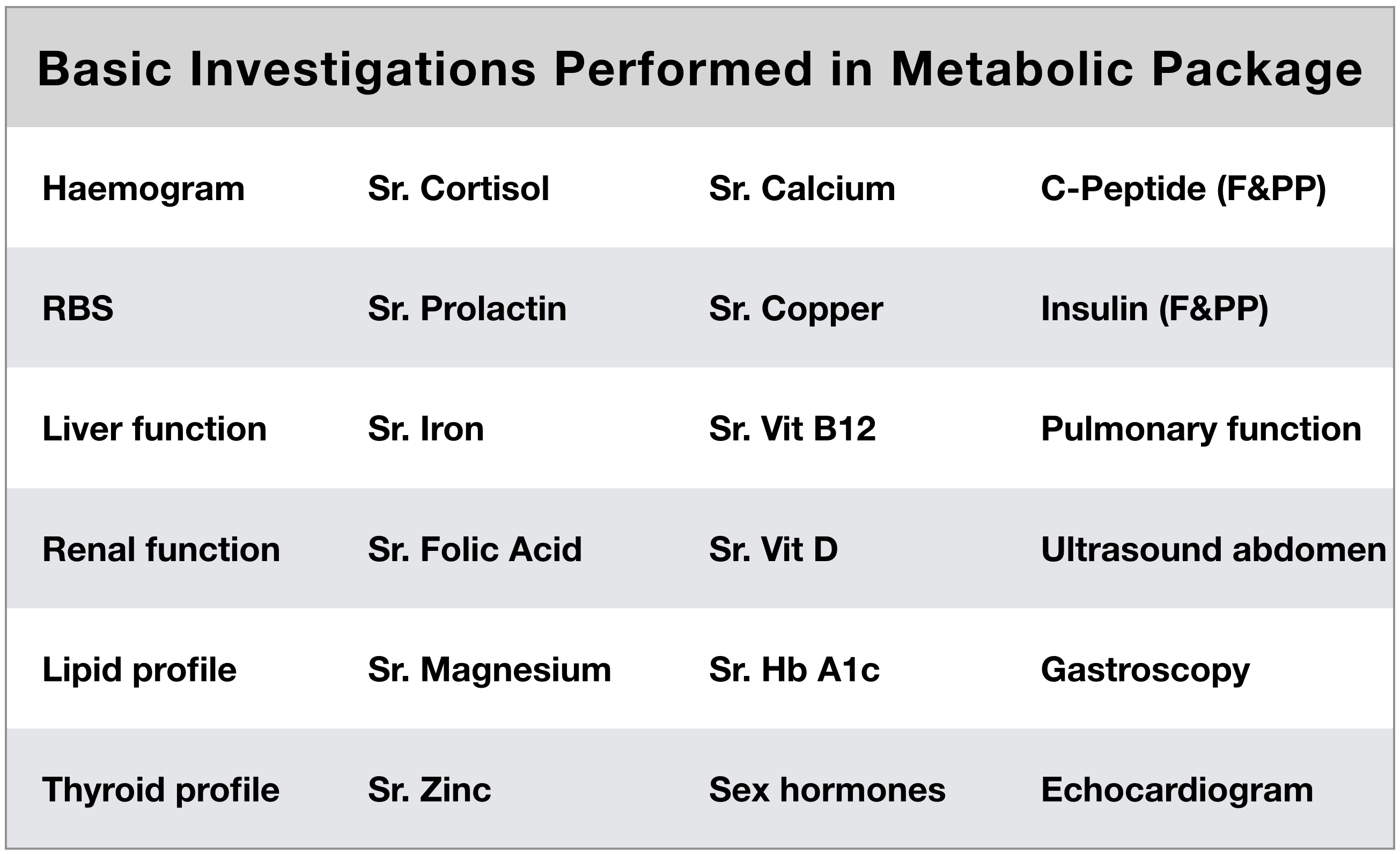

Obesity is assessed by various parameters including percentage excess body weight and waist circumference. However body mass index (BMI) is the most universally acceptable measurement until now. As BMI alone cannot justify the severity of obesity. Body Composition Analysis (BCA) is used to assess additional parameters to give a more accurate assessment of obesity. As obesity will bring along few comorbidities, BCA combined with Metabolic assessment through blood and radiological investigations to diagnose the consequences of obesity gives a more accurate assessment of obesity.
Body composition analysis (BCA) is done to assess the patient’s body obesity index. BCA is essential to completely understand a person’s health and weight, as traditional methods of assessing health, such as BMI, can be misleading. Going beyond your weight, BCA breaks down your body into four components: fat, lean body mass, minerals, and body water. Its is a pain-free and non-invasive method of testing. Bioelectrical Impedance is used for estimating body composition. Safe low-level currents are sent in to the the body through the hand and foot electrodes.The impedance of the current encountered are measured, and from there, various parameters of your body composition is derived.
The common BCA parameters include Body Mass Index (BMI), Skeletal Muscle Mss (SMM), Percentage Body Fat (PBF), Basal Metabolic Rate (BMR), Water content, etc. The real benefit of looking at BCA instead of just absolute weight is that it takes into account, body fat and muscle percentage, along with their distribution, both of which are strongly correlated with obesity and markers of obesity / metabolic syndromes. Waist-Hip ratio marks an important indicator for the increased cardiac and other metabolic risks. The results act as a guide to help you achieve your goals: whether that is shedding a few unwanted pounds or a complete body transformation.

Obesity is considered a disease anymore as it causes various co-morbidities ( associated metabolic diseases ) like diabetes, high blood pressure, heart diseases, high cholesterol, hypothyroidism, obstructive sleep apnoea, arthritis, polycystic ovarian disease, infertility, hypothyroidism, fatty liver, reflux disease, etc. It is mandatory to do detailed medical assessment of various organs for its anatomy and function to understand the complications associated with excess weight gain and its implications on short and long term health and quality of life. Complete assessment of metabolic health is done through a battery of blood tests and other radiology investigations. These tests are effectively done empty stomach early in the morning for best results. The results help us to understand the patient’s medical status in terms of various organ functions and nutritional status so that we optimize them accordingly during medical management of weight loss and prior to surgical treatment as well.
